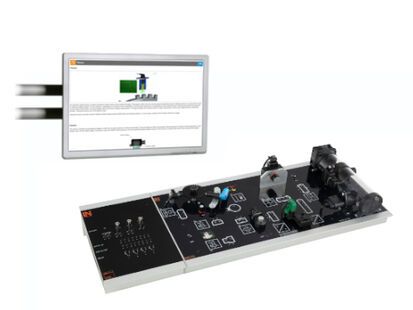Sensors of a modern diesel engine (UniTrain)
Sensors of a modern diesel engine (UniTrain)

In modern motor vehicles more and more components are being monitored and controlled electronically. Sensors have several jobs to do, including the detecting of physical data and converting this information into electrical signals which can then be processed by control units. Trainees should be able to grasp how this process works and the effects different sensor stimuli have on these signals. Our system allows students and trainees to learn and analyse the most essential aspects of this process.
Training contents:
- Physical principles: Induction, Hall effect, piezo-effect
- Purpose of sensors for engine control
- Inductive and Hall-type speed sensors and how they work
- Measurement of throttle valve position: throttle valve switches and potentiometers
- Mass air flow measurement using hot-filament and hot-wire sensors
- Measurement of pressure in the intake manifold
- Detection of shock waves using a knock sensor
- Temperature measurement using NTC and PTC sensors
- Troubleshooting (8 simulated faults activated via relays)